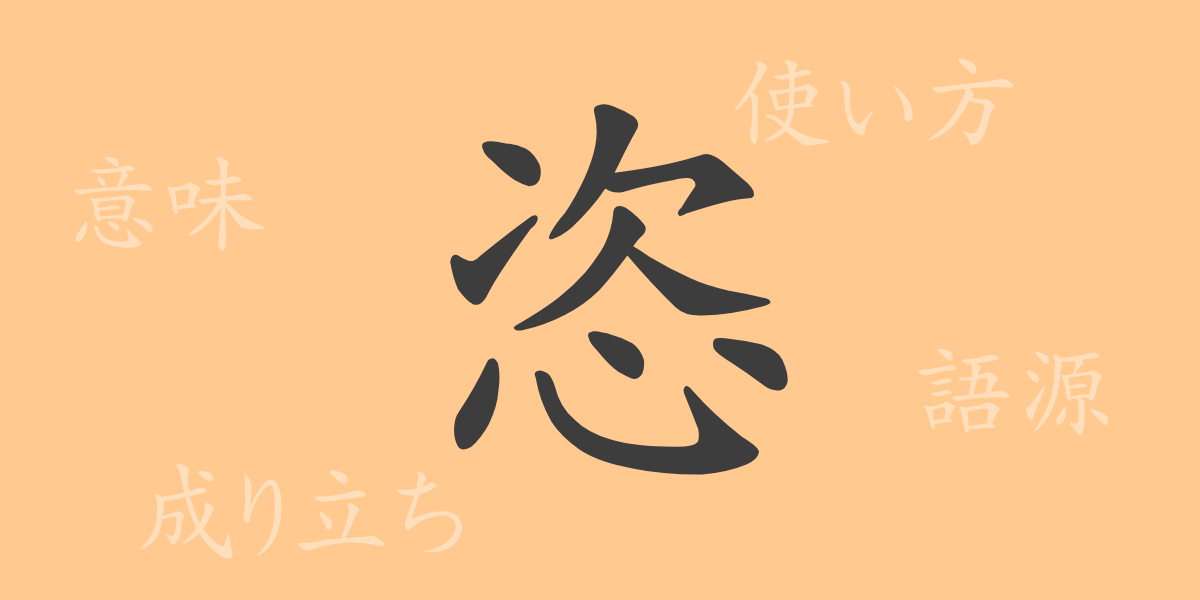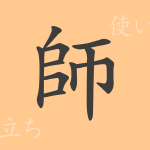Japan’s rich culture is deeply intertwined with numerous kanji characters. Among them, some kanji are less frequently seen in everyday life but carry profound meanings. This time, we focus on the kanji “恣(し)” and explore its charm. From its origin, meaning, and readings to its usage in idioms, let’s delve into the world of “恣(し)”.
Origin of 恣(し) (Etymology)
The kanji “恣(し)” has been used in China since ancient times, with its origin traceable to the ancient Chinese inscriptions on bronze (金文). This character is composed of the radical “心(こころ)” representing the heart and the character “此(し)” indicating a state of being. Originally, it meant “to act according to one’s own will.” Over time, this kanji has been used in various contexts and was introduced to Japan as well.
Meanings and Uses of 恣(し)
The kanji “恣(し)” means “to act as one pleases” or “to do as one wishes.” It often describes actions characterized by freedom and lack of restraint. However, expressions containing this kanji can sometimes carry a negative connotation, criticizing self-centered behavior or actions. For example, it is used to point out behavior that is unrestrained or arbitrary.
Readings, Stroke Count, and Radical of 恣(し)
Here is a summary of the basic information about the kanji “恣(し)”:
- Reading: On’yomi (音読み) is “シ”, there is no kun’yomi (訓読み).
- Stroke count: 10 strokes
- Radical: The radical is “心(こころ・りっしんべん)” representing the heart.
Idioms, Phrases, and Proverbs Using 恣(し)
While idioms and phrases containing “恣(し)” are not numerous, some well-known ones are:
- 恣意的(しいてき): Acting according to one’s own will; subjective and lacking objectivity.
- 恣意(しい): Arbitrary thoughts or intentions; self-centered ideas.
These expressions are often used critically, particularly in contexts where arbitrary actions or judgments are seen as problematic due to a lack of fairness.
Conclusion on 恣(し)
The kanji “恣(し)” is used to emphasize freedom and personal will, but its use requires caution. Arbitrary behavior can sometimes lead to a loss of trust from those around you. However, the unique resonance and meaning of this kanji highlight the richness of the Japanese language. Through this exploration, you can understand the profound history and usage of “恣(し)” and recognize the importance of using it appropriately in context.

























